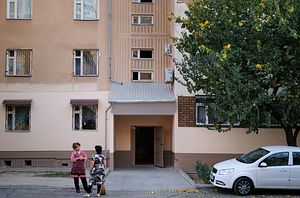On October 31, a citizen of Uzbekistan was arrested for the terrorist attack in New York City that led to the death of eight people. The attack drew parallels to a similar truck attack earlier this year in Stockholm, as well as terrorist deeds in Istanbul and St. Petersburg. In these cases the perpetrators were of Uzbek origin. In addition, over 2,000 Central Asians have taken part in the civil war in Syria, fighting for jihadi organizations like the Islamic State or the Nusra Front. Is Central Asia a breeding ground for extremism?
Both in Europe and the United States, this argument is made with increasing frequency. Fingers are being pointed at Central Asian states, as connections are made between the radicalization supposedly going on in Central Asia and the authoritarian character of these governments and their economic problems. In other words, many appear to assume that repression and/or poverty leads to radicalization.
The problem with this analysis is that there is no evidence that these individuals were radicalized in Central Asia. The perpetrators in Stockholm and New York left Uzbekistan almost a decade ago. Neither showed any tendencies toward radical views or behavior in their home country. It appears, instead, that they developed such views while in Sweden and the United States, respectively.
How about all those Central Asians who went to Syria?
Even here, the research that is available suggests that the large majority of fighters decided to travel to Syria while labor migrants in Russia. Over 80 percent of Central Asians that traveled to Syria were recruited there. As the liberal Russian newspaper Novaya Gazeta concluded, “the road to ISIS goes through Moscow.”
This means that if we truly want to understand why Central Asians are attracted to extremist groups, it is not enough to point at the governance systems in the region, or their economic situation – even though these may leave much to be desired.
It should also be pointed out that the field of research on violent extremism does not provide any simple answers as to why individuals are radicalized. This is the case especially in a world where far more European than Central Asians have traveled to Syria.
Migrants from Central Asia, in fact, do share some commonalities with the young citizens of Europe that traveled to the Middle East for jihad: a quest for identity and meaning in life.
The Soviet legacy of atheism means that many young people in Central Asia, just like in suburbs across Europe, did not grow up with a strongly rooted religious tradition that could form a counterweight to extremism.
Meanwhile, their societies are changing at a furious pace. The new states of Central Asia are trying to develop new and compelling national identities, but that process takes considerable time.
As a Kazakh researcher pointed out to me, the big question facing the young generation is: Who am I? What do I believe in?
In Central Asia, governments are rather effective at countering extremist groups: a 16-year old in Uzbekistan is not likely to have easy access either to extremist preachers or websites. But when they leave their home countries to work in Russia, Turkey, Europe, or the United States, they encounter groups that compete to fill their life with meaning. A small minority of them – again, just like in suburbs across Europe – appear to fall prey to the simplified and hate-filled worldview of extremists.
Meanwhile, what is really going on in Central Asia?
The region’s two largest countries – Kazakhstan and Uzbekistan – have both in the past two years introduced comprehensive economic and political reforms, which among other things reduce the power of the presidents, provide for stronger parliaments and judicial systems, and attempt to fight widespread corruption.
They may have long way to travel on this road. But to point at the weaknesses of these states is in no sense helpful to understand why some Central Asians in exile are drawn to extremism.
Svante Cornell is Director of the American Foreign Policy Council’s Central Asia-Caucasus Institute and a co-founder of the Institute for Security and Development Policy.

































